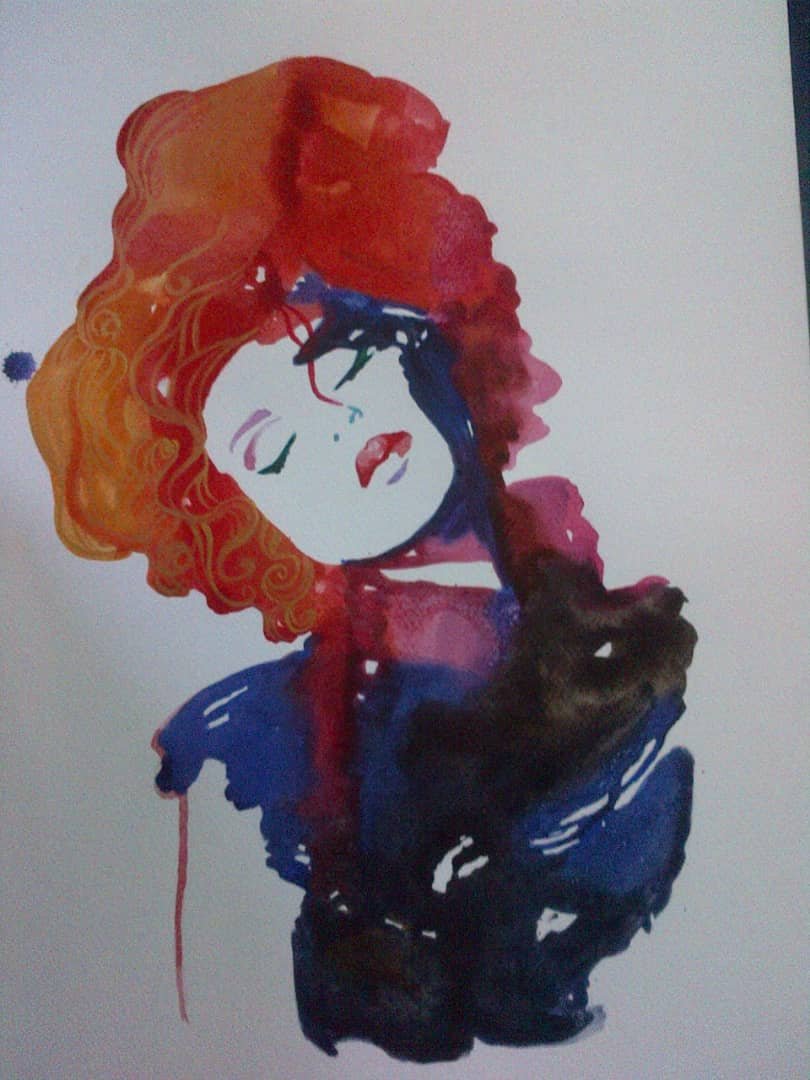Hola a todos los amigos de la comunidad de #holos-lotus!!!
Un abrazo cordial para todos los que compartimos nuestras experiencias en ésta maravillosa familia virtual.
Quiero hacerme parte de los amigos que se han visto motivados por el tema propuesto por la amiga @damarysvibra "Reconectar con los instintos" y comentar mi humilde opinión sobre este tema tan interesante y del que se podría hablar en más de una ocasión.
Una característica interesante y fundamentalmente fascinante del comportamiento animal es el instinto. Como parte inherente de la naturaleza animal, en la que por supuesto nos incluimos nosotros los seres humanos, el instinto se manifiesta como una serie de patrones de conducta que se ejecutan sin necesidad de aprendizaje previo, son comportamientos innatos, respuestas automáticas y heredadas que ayudan a adaptarse y sobrevivir.
Estas conductas innatas, que varían según la especie, cumplen funciones vitales como la búsqueda de alimento, la defensa frente a depredadores, la reproducción y el cuidado de las crías.
A diferencia del comportamiento aprendido, el instinto no requiere experiencia previa, como ya he comentado y se transmite genéticamente de una generación a otra, asegurando la supervivencia y adaptación de las especies al medio ambiente.
Comprender el funcionamiento de los instintos es comprender los mecanismos que rigen la vida, por ejemplo el instinto de supervivencia es esencial para la preservación de la vida individual.
El impulso natural que nos lleva a buscar y consumir alimentos, quizás fue el que dió pie a otro instinto de búsqueda, de investigar o conocer su entorno para adaptarse y encontrar zonas de mejor alimentación y de convivencia.
La necesidad de vivir en grupos o comunidades, interactuando con otros por medio de juegos, principalmente en niños y jóvenes favoreciendo el desarrollo cognitivo y físico, trajo consigo el instinto gregario. La búsqueda de cercanía y protección, de cooperación y ayuda mutua favoreció al desarrollo de las especies.
Por supuesto, también esta el instinto sexual, dirigido hacia la reproducción de la especie y el instinto maternal. Esté último es uno de los instintos que más importancia le damos en la sociedad. Es innegable la fuerza de conexión entre una cria y su madre, al punto de saber si tiene alguna dolencia solo con mirarlo.
A veces hasta parece una conexión de otro mundo y esto me lleva a pensar que hay una dimensión en la que los instintos se acercan a lo esotérico, en la que la logica no siempre tiene cabida y donde lo invisible adquiere protagonismo.
El instino al surgir inmediatamente sin razonamiento previo, nos guía en decisiones cruciales, nos alerta ante peligros y nos conecta con una sabiduría primordial que escapa a las palabras. No lo aprendemos, lo traemos dentro como un eco ansestral que resuena en lo más profundo del ser.
Por otra parte lo esotérico busca desentrañar verdades que no son accesibles mediante el pensamiento racional o científico. Se mueve en territorios sagrados, donde la realidad se presenta como un entramado de significados ocultos que esperan ser revelados.
Ambos conceptos, aunque distintos, comparten una esencia común: la conexión con lo invisible y lo inexplorado. Tanto el instinto como lo esotérico apuntan a una experiencia que no puede ser del todo explicada, pero sí profundamente sentida. Mientras el instinto se manifiesta como un impulso natural, lo esotérico requiere una búsqueda consciente, un abrirse al misterio.
En su intersección, estos dos mundos nos invitan a reconectar con partes olvidadas de nosotros mismos. Nos recuerdan que no todo debe ser comprendido para ser verdadero, y que algunas de las respuestas más importantes no vienen del razonamiento, sino de ese saber interior que brota en silencio, como un susurro antiguo que nunca nos ha abandonado
Pero es interesante ir un poco más allá, y creo que muchas de nuestras respuestas instintivas están moldeadas por siglos de condicionamiento psicológico y cultural. Por ejemplo, el miedo que puede ser una reacción instintiva ante una amenaza física, se ha transformado por medio del pensamiento, en miedo psicológico: miedo al fracaso, al rechazo, a la soledad, a la muerte.
Sería interesante cuestionar si lo que llamamos instinto no es, en realidad, una combinación de memoria, experiencia pasada y hábitos profundamente arraigados que funcionan como reflejos.
Viendo el fenómeno desde este punto de vista, el pensamiento al operar sobre el tiempo y la memoria, refuerza ciertos impulsos que, aunque parezcan naturales o espontáneos, en realidad están programados.
En este sentido, el instinto deja de ser algo puramente biológico y se convierte en una fuerza condicionada por la cultura, la religión, el lenguaje y la tradición.
El instinto puede convertirse en una fuente de conflicto si no es observado y comprendido. Por ejemplo, el impulso hacia la competencia, el deseo de poder o de seguridad pueden parecer "naturales", pero creo que estos impulsos han sido fortalecidos por siglos de pensamiento egocéntrico.
Por eso pienso que es saludable observar los instintos sin juicio, sin identificarse con ellos, y sin la interferencia del pensamiento condicionado. Me parece que la clave está en la observación silenciosa y atenta de uno mismo. A través de la percepción profunda, sin la intervención del pensamiento analítico, uno puede ver el origen de estos impulsos.
En conclusión, tengo la impresión de que muchas de nuestras reacciones instintivas no son más que patrones mentales condicionados que hemos aceptado como inevitables. Solo mediante una profunda autoobservación podemos discernir qué es realmente instintivo y qué es un producto del miedo y del pensamiento acumulado. Esta comprensión puede llevarnos a una vida de mayor libertad, claridad y compasión.
Instinct, a call to deep consciousness.
Hello to all the friends of the #holos-lotus community!!! A warm hug to all of us who share our experiences in this wonderful virtual family.
I want to join the group of friends who have been inspired by the topic proposed by my friend @damarysvibra, "Reconnecting with your instincts," and share my humble opinion on this very interesting topic, one that could be discussed on more than one occasion.
An interesting and fundamentally fascinating characteristic of animal behavior is instinct. As an inherent part of animal nature, which of course includes us humans, instinct manifests itself as a series of behavioral patterns that are executed without prior learning. They are innate behaviors, automatic and inherited responses that help animals adapt and survive.
These innate behaviors, which vary by species, fulfill vital functions such as foraging, defense against predators, reproduction, and caring for offspring.
Unlike learned behavior, instinct does not require prior experience, as I have already mentioned, and is transmitted genetically from one generation to the next, ensuring the survival and adaptation of species to the environment.
Understanding how instincts work means understanding the mechanisms that govern life. For example, the survival instinct is essential for the preservation of individual life.
The natural impulse that drives us to seek and consume food perhaps gave rise to another foraging instinct: to investigate or understand one's environment in order to adapt and find areas with better food and coexistence.
The need to live in groups or communities, interacting with others through play, especially in children and young people, fostering cognitive and physical development, brought with it the gregarious instinct. The search for closeness and protection, for cooperation and mutual aid, favored the development of species.
Of course, there is also the sexual instinct, directed toward the reproduction of the species, and the maternal instinct. The latter is one of the instincts we give the most importance to in society. The strong connection between a baby and its mother is undeniable, to the point where we can tell if she has an ailment just by looking at her.
Sometimes it even seems like an otherworldly connection, and this leads me to think that there is a dimension in which instincts approach the esoteric, where logic doesn't always have a place and where the invisible takes center stage.
Instinct, which arises immediately without prior reasoning, guides us through crucial decisions, alerts us to danger, and connects us with a primordial wisdom that defies words. We don't learn it; we carry it within us like an ancestral echo that resonates in the depths of our being.
On the other hand, the esoteric seeks to unravel truths that are not accessible through rational or scientific thought. It moves in sacred territories, where reality is presented as a network of hidden meanings waiting to be revealed.
Both concepts, although distinct, share a common essence: the connection with the invisible and the unexplored. Both instinct and the esoteric point to an experience that cannot be fully explained, but must be deeply felt. While instinct manifests itself as a natural impulse, the esoteric requires a conscious search, an opening to the mystery.
At their intersection, these two worlds invite us to reconnect with forgotten parts of ourselves. They remind us that not everything must be understood to be true, and that some of the most important answers come not from reasoning, but from that inner knowing that springs up silently, like an ancient whisper that has never left us.
But it's interesting to go a little further, and I believe that many of our instinctive responses are shaped by centuries of psychological and cultural conditioning. For example, fear, which may be an instinctive reaction to a physical threat, has been transformed through thought into psychological fear: fear of failure, rejection, loneliness, and death.
It would be interesting to question whether what we call instinct isn't actually a combination of memory, past experience, and deeply ingrained habits that function as reflexes.
Viewing the phenomenon from this perspective, thought, by operating on time and memory, reinforces certain impulses that, although they may seem natural or spontaneous, are actually programmed.
In this sense, instinct ceases to be something purely biological and becomes a force conditioned by culture, religion, language, and tradition. Instinct can become a source of conflict if it is not observed and understood. For example, the drive toward competition, the desire for power or security may seem "natural," but I believe these drives have been strengthened by centuries of self-centered thinking.
That's why I think it's healthy to observe instincts without judgment, without identifying with them, and without the interference of conditioned thinking. It seems to me that the key lies in silent and attentive self-observation. Through deep perception, without the intervention of analytical thinking, one can see the origin of these impulses.
In conclusion, I have the impression that many of our instinctive reactions are nothing more than conditioned mental patterns that we have accepted as inevitable. Only through deep self-observation can we discern what is truly instinctual and what is a product of fear and accumulated thinking. This understanding can lead us to a life of greater freedom, clarity, and compassion.




